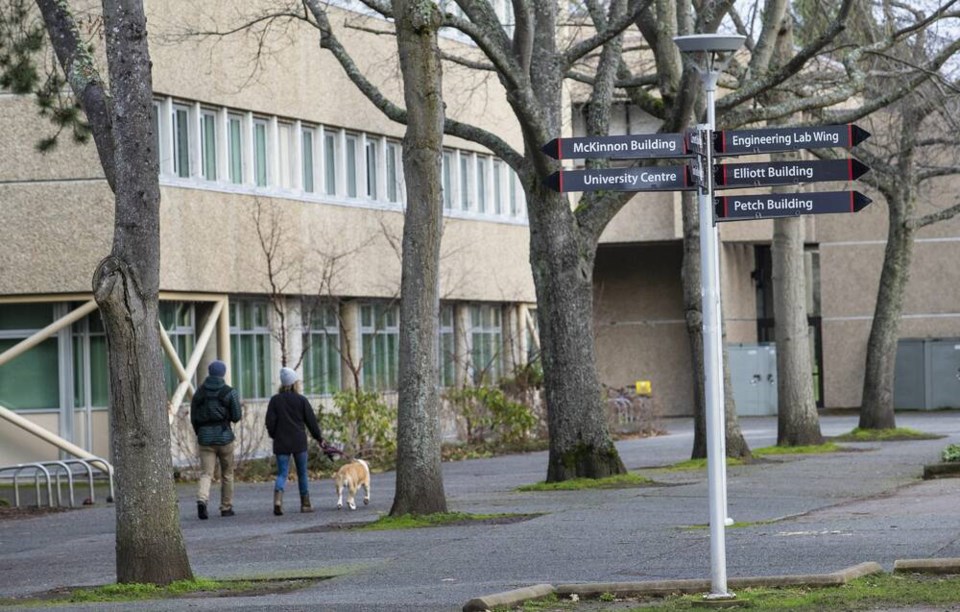Canada’s decolonial and reconciliation movements are neither perfect nor immune from criticism. Both are infected with profiteers, idiots and lunatics.
Those voices are unhelpful at best, and destructive like a viral disease at worst. Identifying and filtering out those voices is an important part of ensuring the integrity of any movement.
One very popular anti-colonial practice is for social-media users to list their photo’s locations as “Lekwungen Territory” instead of Victoria. Some people see this as a genuine sign of recognition and respect. Most do it because it’s a popular trend with an expiry date, like eating Tide pods and dabbing.
For evidence, the majority of people who insist on using Lekwungen Territory instead of Victoria won’t refer to San Francisco as “Yeluma Territory” on social media.
California is a prestigious tourist destination for Canadian tourists and they like to post photos of their vacations. Calling it Yeluma Territory won’t harvest the same envy from their friends. It is a thoroughly local trend intended to garner local clout, which explains why being anti-colonial ends when said tourists clear Canadian airspace.
Many of those social media users received, or are currently receiving, what is called education in places such as the University of Victoria.
Post-secondary institutions are thoroughly corporate entities in the 21st century, and decolonization is a popular and profitable topic. UVic currently offers a course called the Politics of Colonialism. The required textbooks for the single course cost $238 before taxes.
On the mainland, the University of British Columbia offers a course called Decolonizing and Creating Culturally Responsive Pedagogy. The course’s title is not translated into normal English, but the $375 price is made obvious. Becoming officially certified in decolonization is expensive.
Being that universities are institutions born of colonialism, fully decolonizing Canada would eliminate nearly all academic jobs, which is why academics prefer circular, esoteric discussions. Academia is a self-funding world and selling decolonization is an easy way to make money.
Many professors make their living peddling decolonization to young people who need course credits. Anyone who has taken those courses knows they are an easy A. If you can find 2,000 words to describe why a pack of condoms upholds colonialism, you can make the dean’s list.
Leaving dilettantes aside, their more militant counterparts are less interested in profits than violence. They went after the statue of Capt. James Cook last July 1, ripped it apart and threw it into the Inner Harbour. The statue’s decapitated head was brandished, to the delight of the delirious crowd.
It was cheered by Harsha Walia, then head of the B.C. Civil Liberties Association. She said the decapitation was one of the least violent decolonial acts that could have happened, which made sense for people who can be convinced that wet is dry and dogs are cats.
Walia reacted to churches being burned throughout Canada last summer with four words: “Burn it all down.” When called out for such a reckless statement, Walia insisted she was being metaphorical and not actually encouraging anti-colonial arson. Believe that if you will. Donald Trump insists he never really encouraged anybody to storm the U.S. Capitol.
Walia is a recurring guest speaker at the University of Victoria, a reminder that academics and activists feed off each other, despite their vastly different approaches. They share one important characteristic: You are allowed to call them out and ignore them. Doing so doesn’t make you anti-Indigenous or anti-reconciliation.
Just because somebody wrote an $80 textbook on decolonization doesn’t mean they wrote the Bible of reconciliation. Similarly, not everyone who claims to support decolonization is worth listening to.
Decolonization and reconciliation are not perfect processes. Both have obvious faults that people shouldn’t be shy about pointing out.
Most Indigenous people don’t want to burn down Canada. If that was the case, the reconciliation process would be dead and buried.
First Nations are leading reconciliation by reclaiming their territory through amicable, consensual deals. Indigenous leaders just reached a settlement with the federal government to redress damage done to Indigenous children by inadequate child services.
When this ongoing process of reconciliation is finally concluded, it will not be because of sanctimonious social media decisions, unreadable $80 textbooks and the destruction of public art.
It will have occurred because people chose to focus on what matters.
- - -
Comment on this article by sending a letter to the editor: [email protected]



